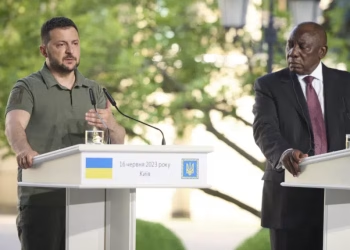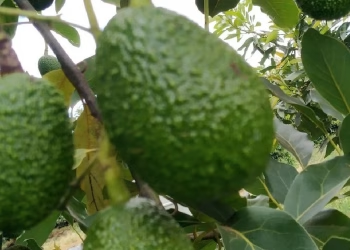The United States has supplied at least 600 assorted firearms to the Kenyan-led Multinational Security Support Mission (MSS) in Haiti, strengthening efforts to combat criminal gangs in the Caribbean nation.
The delivery, made on Monday, February 10, also included nine pickup trucks, two heavy-duty trucks, two excavators, two armored loaders, and a significant quantity of ammunition. Officials noted that these reinforcements would enhance ongoing security operations on the ground.
MSS commander Godfrey Otunge highlighted the impact of the support, stating that the mission’s operational capabilities have significantly improved.
“This donation underscores the United States’ continued commitment to supporting both the Haiti National Police (HNP) and MSS, enhancing their operational capacity to combat gangs and restore peace in Haiti,” he said.
Air support has been reinforced with additional resources from El Salvador, maritime capabilities have been strengthened by contributions from the Bahamas, and land operations have received key equipment from donor nations.
A Ukrainian cargo plane from El Salvador arrived carrying three helicopters designated for medical evacuations (Medevac) and casualty evacuations (Casevac), further bolstering the mission’s logistics.
The successful arrival of reinforcements countered skepticism that the mission was at risk following the recent U.S. government decision to freeze contributions to the Trust Fund.
“The deployment of additional personnel and equipment reaffirms that the MSS mission remains fully operational and continues to make progress toward its objectives,” Otunge said.
The Kenyan contingent is part of a UN-approved international force comprising 2,500 officers from multiple countries.
On Saturday, February 8, 2025, Haiti’s Transitional Presidential Council President Leslie Voltaire, PNH Director General Normil Rameau, and MSS commander Otunge made an unexpected visit to Kenscoff. Their presence was a show of support for the joint security forces combating gang violence in the commune.
During their visit, they toured the local police station and town hall, reaffirming their commitment to restoring security and dismantling criminal networks.
Later, MSS and HNP forces launched a targeted operation in Croix-des-Bouquets, focusing on the stronghold of the 400 Mawozo gang, led by Lanmô San Jou. Security forces dismantled structures set up for an unauthorized carnival, signaling that gangs would not be allowed to operate freely under MSS/PNH watch.
Joint operations continued in Tabarre, leading to the arrest of several Krazebarière gang members. Security forces seized 15 handguns and 12 communication radios, dealing a significant blow to Vitèlôme’s criminal network, part of the ‘Vivansam’ gang alliance.
Haiti has endured chronic instability, dictatorships, and natural disasters, making it the poorest nation in the Americas. Last year, gangs overran several neighborhoods in Port-au-Prince and surrounding areas, worsening the country’s humanitarian crisis and forcing tens of thousands to flee their homes.
The United Nations reported that over 5,600 people were killed by gang violence in 2024, marking an increase over previous years, with more than 1 million Haitians now displaced.
Despite being endorsed by the UN Security Council, the international security mission is not a United Nations operation and relies on voluntary contributions.
















